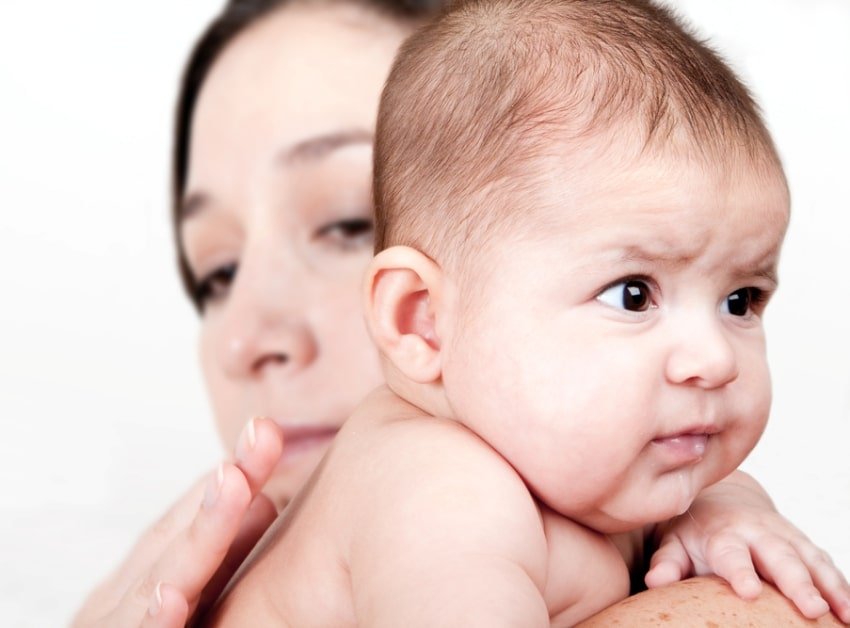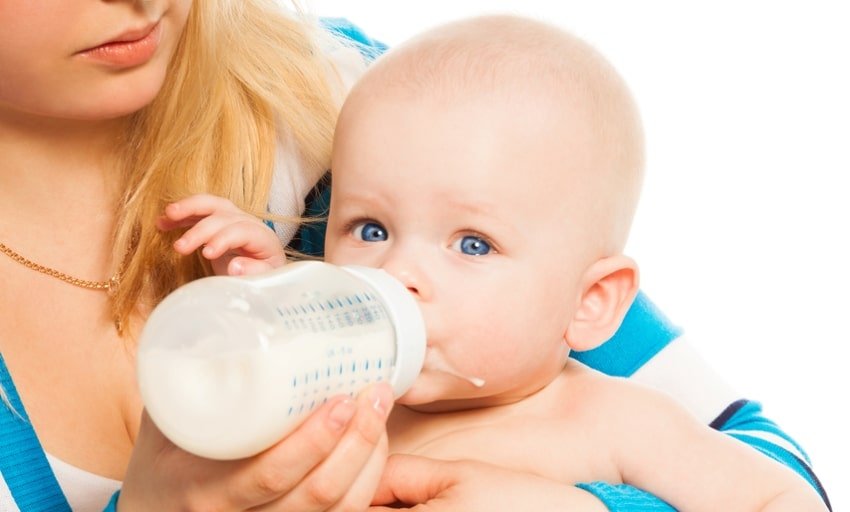All parents know that feeding a baby is one of the most challenging things you must do to care for your baby.
You want to ensure that your baby gets all of the nutrients they can get, so you do everything you can to feed them properly. After feeding, many parents feel like all their hard work was for nothing if the baby vomits.
If you notice that your baby vomits after feeding, there are some things you can do to help prevent this from happening.
What Is The Cause Of Vomiting?
The reason for vomiting can vary depending on each child. Often, vomiting is an expected but rare occurrence in young babies that tends to decrease as child ages. Typically, babies spit up after feeding, and vomiting is rare.
The force and frequency of vomiting should be mentioned to your doctor.
Vomiting occurs when the stomach nerves are irritated by an infection or even a blockage that prevents milk from being digested properly. It can also result if a baby is given too much stimulus during or immediately following a feed.
Another common cause of vomiting is when a stimulus is present within the ear.
Other reasons for vomiting may include fever or a vaccination. Many babies experience vomiting after getting a vaccine, simply because their body’s in moderate pain and is fighting off a new intruder.
Another symptom of vomiting in babies is when they are moved around too much after eating.
There are some reasons for vomiting that may be cause for immediate medical attention, even though they are rare. One cause could be Pyloric stenosis. However, this would cause vomiting after every feeding and would spark concern immediately.
View in gallery
Difference Between Vomit and Spit Up
Many new parents are unable to tell the difference between vomiting and spit-up, which can cause a great deal of worry.
For the most part, pediatricians will tell you that you know if it is vomit when you see it. This can provide some relief for parents. However, for many, it does not clarify the question at all.
Vomiting is forceful propulsion of stomach fluids. Spit up is just a simple flow of food or drink from the mouth. If it’s just spit-up, you don’t need to worry and can simply wipe it away using a bib.
- Soft Organic and Absorbent Material - Front is 100% soft organic cotton, back is polyester fleece for absorbency. Protect & keep your drooly teething baby dry from all dribble and spit ups, with the dual layer function dribble bibs you dont have to worry more!
- Adjustable and High-Quality Plastic Snaps - Each baby bandana bibs comes with 2 plastic snaps which prevent any risk of allergic reactions to babys sensitive skin. The drool bibs is perfect to fit all the time while your baby grows form 0 to 36 months. Bibs stay in place and your baby wont be able to pull them off!
Prices pulled from the Amazon Product Advertising API on:
Product prices and availability are accurate as of the date/time indicated and are subject to change. Any price and availability information displayed on [relevant Amazon Site(s), as applicable] at the time of purchase will apply to the purchase of this product.
If there is a real force behind the fluid, it is likely to vomit. Baby vomit can have the same force that adult vomit has, and you would know it when you see it.
Tips To Prevent Vomiting
All parents know that when your baby vomits, it can be a traumatic experience. No parent wants to think that their baby is in pain or unable to eat properly. Fortunately, there are many things that a parent can do to prevent and reduce the risk of vomiting after feeding.
Here are some of the top ways to prevent vomiting after feeding.
Do Not Overfeed Your Baby
One of the main things to avoid in your newborn is overfeeding. While every parent wants to make sure that their baby is getting enough breastmilk or formula, you need to be careful not to overfeed them.
If a baby overeats or eats too quickly, they may not have time to digest the food, which can cause them to spit up the food or vomit.
Change Formulas
If you notice that your baby is spitting up or vomiting more than a reasonable amount, you may need to change the formula that you are using. Not all baby formulas are the same, and you must change formulas to reduce the risk of vomiting.
Some formulas may cause an allergic reaction in your newborn that causes them to spit up or vomit. One of the main allergies that children can have is called milk-soy protein intolerance that requires them to drink a special formula.
Burp Your Baby
While many people burp their baby after feeding, you may need to also burp your baby multiple times during feeding if you notice that they spit up or vomit more than a normal child.
Allowing the air bubbles to escape before filling their stomachs with more food can help improve their condition.
Reduce Stimulus After Feeding
Another great way to reduce the frequency of spit up or vomit is to reduce the stimulus that you expose your baby to after a feeding.
Letting your baby relax and sit up after feeding calmly will enable them to digest their food fully before playing again.
Issues Related To Vomiting
Vomiting can be a real concern for parents because while it does happen, it should not occur regularly. If your baby vomits once in a while, you should still consult your doctor. However, it is a not likely cause for concern.
If you notice that your baby is vomiting regularly, it could put your baby at risk for dehydration and weight loss. Visit a doctor on all your regularly scheduled appointments.
This will allow your doctor to check your baby’s weight if your pediatrician notices that they are not gaining weight properly, and within a healthy range, they may ask you about vomiting issues.
View in gallery
What To Do If Your Baby Vomits?
To help prevent dehydration in babies, you should try to feed your baby again after they vomit. Since vomiting removes all of the stomach contents from the stomach, likely, your baby will still be hungry after they vomit.
If your baby vomits, you may decide to wait a few minutes and then offer them a bottle again. If your baby takes the bottle, you should continue feeding them normally. If your baby does not want to take the bottle, you should try again in about a half-hour.
If they still do not wish to take the bottle, you may offer older babies a few sips of water. Feeding your baby after vomiting is vital because it helps prevent dehydration and weight loss.
Ask Your Doctor If All Else Fails
Your pediatrician is the best person to answer all of your questions and will let you know if you need to bring your baby in for a physical examination.
While vomiting and spit-up are a right of passage for all new parents, it can still be a terrifying thing. No parent expects to feed their baby and then watch them vomit it up. Typically, vomiting is not a cause for concern unless it happens frequently.
If you panic about how much your baby is eating or if they are gaining weight, you can always call your pediatrician. Pediatrics are used to dealing with parents and answering questions that may seem like common sense.
Your peace of mind can help relax your baby, help them enjoy feedings, and help prevent them from vomiting. Your baby senses everything that you detect. If they notice that you are concerned for them, it could make the problem worse.
Contacting your pediatrician to get reassurance can help all of you stay more calm and confident.






